The burning of a Christmas tree by gunmen in the Syrian city of Hama has fuelled fears within the country’s Christian community that they will be targeted by Islamist factions under the new administration.
The ousting of Bashar al-Assad’s brutal regime by Hayat Tahrir al-Sham (HTS), an Islamist rebel group which was previously aligned with al-Qaeda, has led to anxiety over what the future holds for Christians and other minority groups in the country.
HTS quickly responded to the shocking videos last night, with a religious leader from the group telling residents that those who torched the tree were ‘not Syrian’ and promising they would be punished.
‘The tree will be restored and lit up by tomorrow morning’, he said, with local media reporting that the work was completed as promised.
The parish priest in the Christian-majority town of Suqaylabiyah also reportedly said that the culprits were eight non-Syrian nationals who decided to set fire to the Christmas tree two days after it was lit.
Hundreds of demonstrators took to the streets in Christian areas of Damascus overnight to protest the burning of the tree hours before Christmas Eve.
‘We demand the rights of Christians,’ protesters chanted as they marched through the Syrian capital towards the headquarters of the Orthodox Patriarchate, while many staged a sit-in at the city’s Mariamite Cathedral.
The protests come just over two weeks after an armed coalition toppled dictator Assad, who ruled the Sunni-majority country with an iron fist for 24 years, with his ousting bringing in a new period of uncertainty for Syrians.
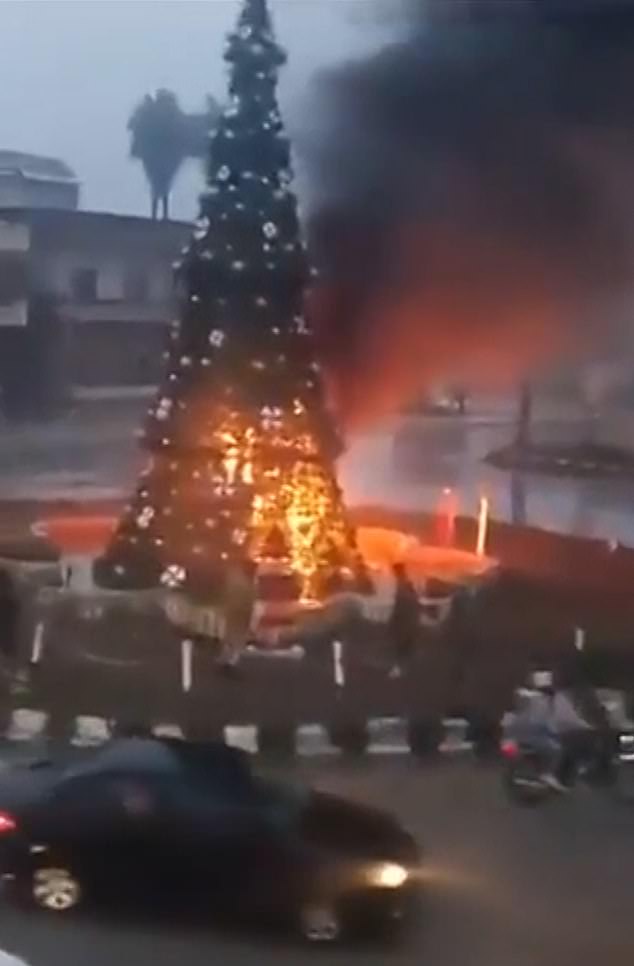
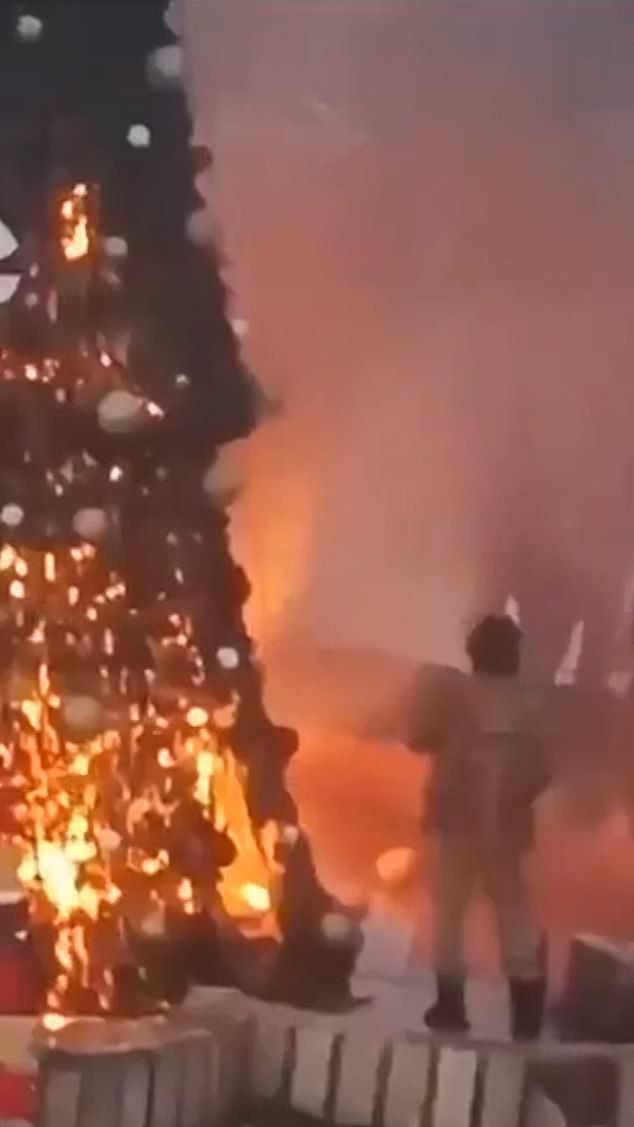
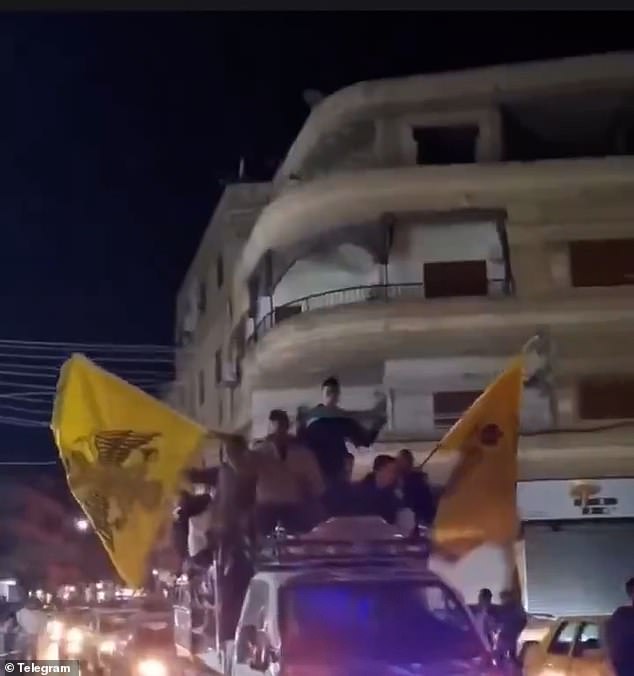
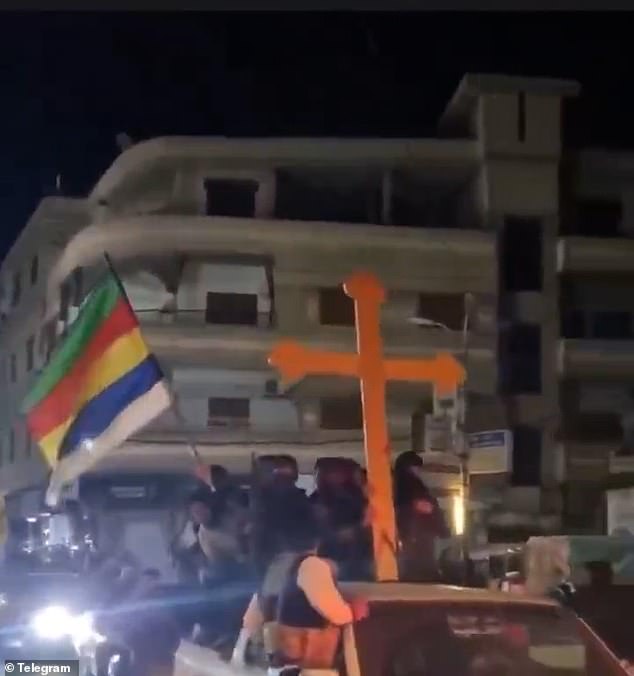
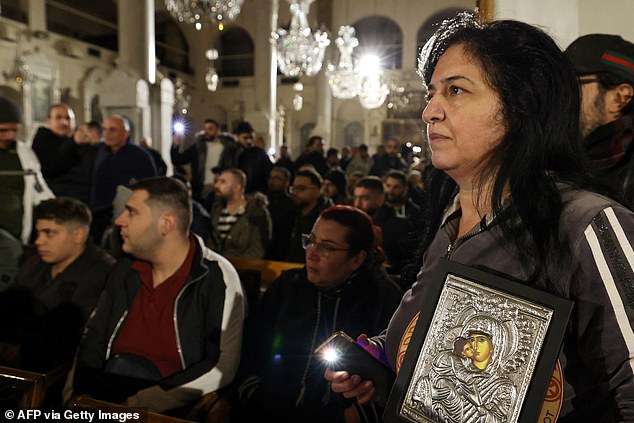
Assad, a member of the Alawite minority, publicly presented his government as promoting secularism and protecting minorities, but in reality his regime’s brutal crackdowns touched every part of society, with members of the Christian, Muslim and other communities fleeing the country during the bloody civil war.
Despite jubilation about his deposition, there is still widespread anxiety among Christian and other minority groups about what the new HTS-led administration will mean for their freedoms.
Last week, unidentified gunmen opened fire on an Orthodox church in Hama. No one was hurt in the incident and the local bishop said authorities had responded quickly, securing the scene and arresting those responsible.
In another incident days after the fall of Assad, a cemetery in the Christian town of Mhareh, near Hama, was vandalised, according to Christian groups.
A demonstrator who took to the streets of Damascus last night and gave his name as Georges told AFP he was protesting ‘injustice against Christians’.
‘If we’re not allowed to live our Christian faith in our country, as we used to, then we don’t belong here anymore,’ he said.
According to the Syrian Observatory for Human Rights, the fighters who torched the tree were foreigners from the Islamist group Ansar al-Tawhid, which has links to al-Qaeda.
The HTS movement, rooted in Al-Qaeda and supported by Turkey, has promised to protect minorities since its lightning offensive toppled Assad on December 8 following years of stalemate.
The group’s leader Ahmed al-Sharaa, better known by his nom de guerre Abu Mohamed al-Jolani, has repeatedly declared that he will work to dissolve all factions and bring them under the command of the Ministry of Defence.
There are fears however that HTS will not be able to bring all of the armed groups under control and that there could be revenge attacks against Christian communities, with those targeting them potentially claiming that they supported the old regime.
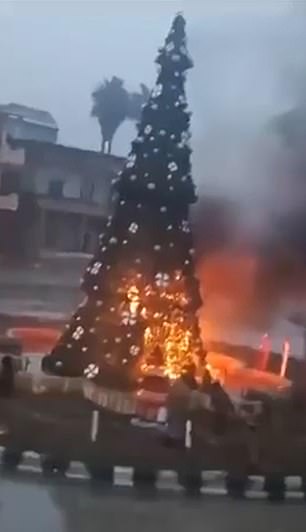
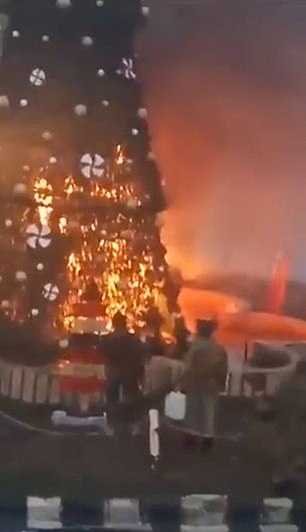
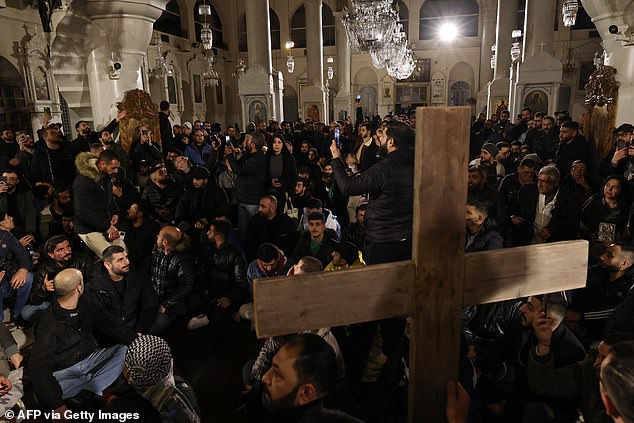
HTS started as a splinter group of al-Qaeda, but has worked for years to distance itself from its jihadist past.
It is currently listed as a terrorist organisation by the UN, US, EU and UK, with Sharaa saying it should now be de-listed and insisting it is not a terrorist group and does not target civilians or civilian areas.
Sharaa denied that he wanted to turn Syria into a version of Afghanistan, saying the countries are very different, with Afghanistan being a ‘tribal society’ and very different to diverse Syria.
He said he believed in education for women and referred to the north-western province of Idlib, which has been held by rebels since 2011, where they have had ‘Universities for more than eight years’.
Speaking to the BBC, he added: ‘I think the percentage of women in universities is more than 60 per cent.’
He would not comment on whether drinking alcohol would be allowed in the country.
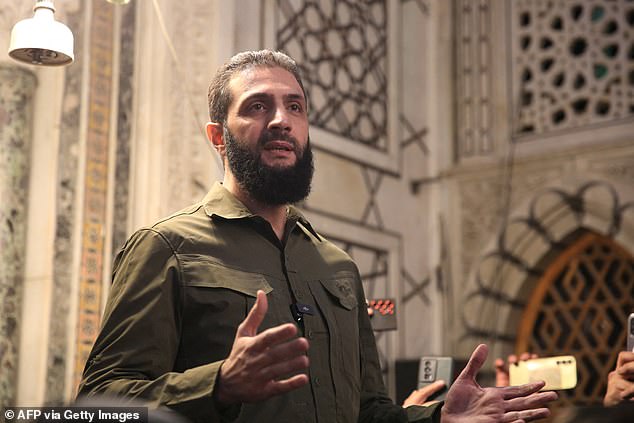

‘There are many things I just don’t have the right to talk about because they are legal issues,’ he said.
‘There will be a Syrian committee of legal experts to write a constitution. They will decide. And any ruler or president will have to follow the law’.
Sharaa also said he wanted to bring different religious groups together and ‘not play on sectarian division’.
He added: ‘The Syrian population has lived together for thousands of years. We are going to have dialogue and make sure everyone is represented.
‘The old regime always played on sectarian divisions, but we won’t. I think the revolution can contain everybody.’
HTS is now setting about bringing Syria under control, establishing a transition government and working to roll out aid and services to civilians.

